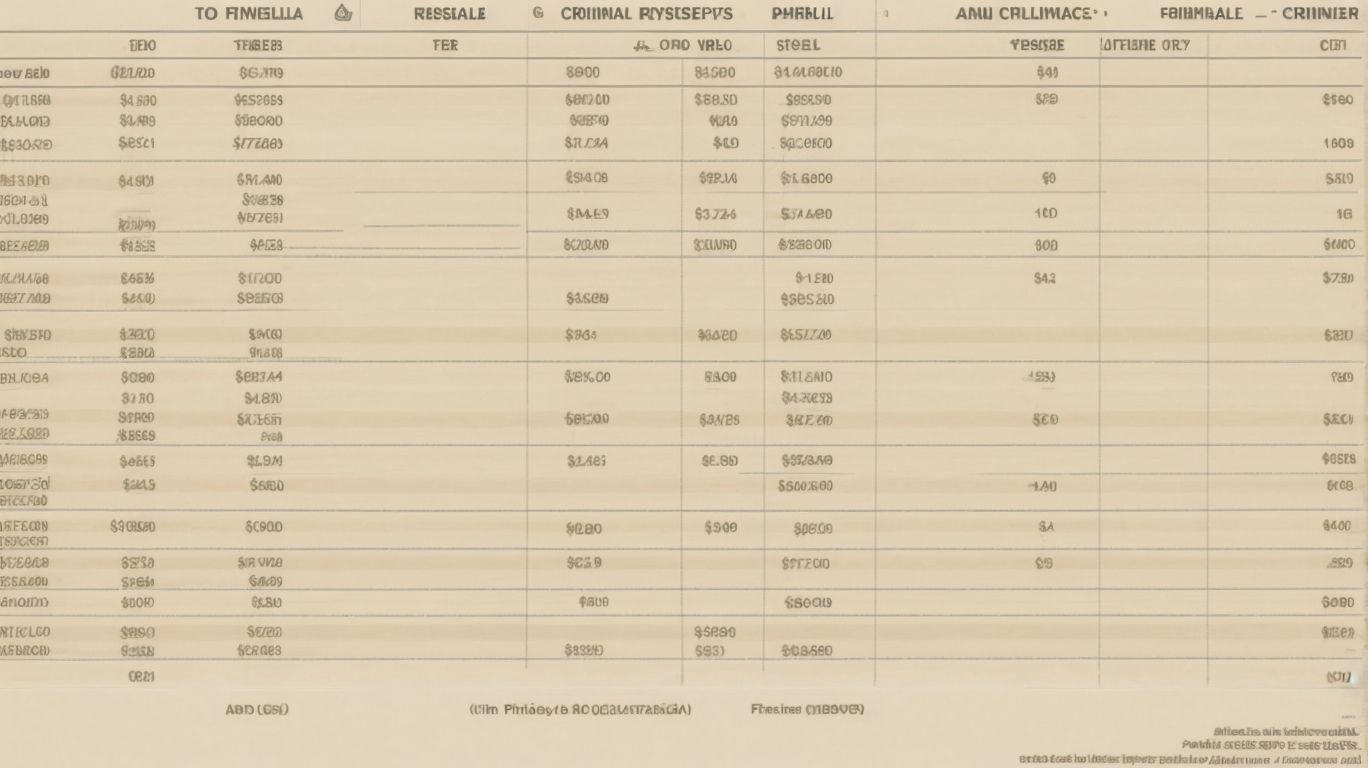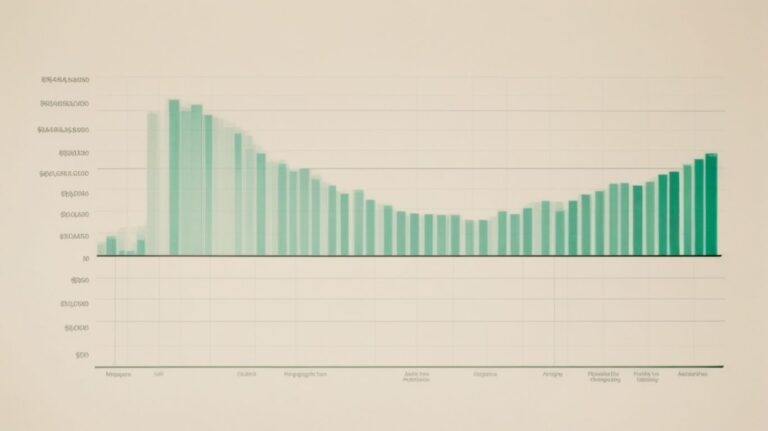Are you interested in the field of criminal psychology? Wondering what a criminal psychologist actually does and what education and training is required to pursue this career?
In this article, we’ll take a deep dive into the world of criminal psychology, exploring the skills and qualities needed to succeed in this field, as well as the salary range for criminal psychologists. We’ll also discuss the job outlook and opportunities available for those pursuing a career in criminal psychology.
Whether you’re considering a career change or simply curious about the field, we’ve got you covered!
Contents
- 1 Key Takeaways:
- 2 What Is Criminal Psychology?
- 3 What Does a Criminal Psychologist Do?
- 4 What Education and Training is Required to Become a Criminal Psychologist?
- 5 What Skills and Qualities are Needed to Succeed as a Criminal Psychologist?
- 6 What is the Salary Range for Criminal Psychologists?
- 7 What are the Job Outlook and Opportunities for Criminal Psychologists?
- 8 Frequently Asked Questions
- 8.1 What is a criminal psychologist?
- 8.2 What factors influence the salary range for criminal psychologists?
- 8.3 What is the average salary for a criminal psychologist?
- 8.4 Is there a high demand for criminal psychologists?
- 8.5 What education and training is required to become a criminal psychologist?
- 8.6 Are there opportunities for career advancement in the field of criminal psychology?
Key Takeaways:
What Is Criminal Psychology?
Criminal psychology, also referred to as forensic psychology, is the study of the thoughts, feelings, and behaviors of individuals who have committed crimes or become involved in the criminal justice system.
This field explores the psychological factors that contribute to criminal behavior, aiming to understand the root causes and motivations behind actions.
Criminal psychology applies various psychological theories and research methodologies to analyze criminal minds and behaviors, shedding light on the complexities of criminal activities.
Forensic psychologists use their expertise to assist in legal contexts, such as evaluating the mental competency and state of mind of defendants, providing counseling to incarcerated individuals, conducting risk assessments, and offering expert testimony in court proceedings.
What Does a Criminal Psychologist Do?
A criminal psychologist specializes in evaluating and analyzing the mental and emotional aspects of individuals within the criminal justice system, providing insights into their behavior, motivations, and potential for rehabilitation.
These professionals play a crucial role in profiling individuals involved in criminal activities. They work closely with law enforcement to create psychological profiles that can aid in identifying and apprehending perpetrators.
Criminal psychologists are responsible for conducting risk assessment to determine the likelihood of reoffending. This information is valuable for parole boards and courts in making informed decisions about an individual’s release or sentencing.
They are also involved in therapeutic interventions, offering therapy and counseling to incarcerated individuals. This helps to address underlying psychological issues that may have contributed to their criminal behavior.
What Education and Training is Required to Become a Criminal Psychologist?
Becoming a criminal psychologist typically involves obtaining a bachelor’s degree in psychology, followed by advanced education and specialized training in forensic psychology or clinical psychology, alongside completion of internship and residency programs.
After completing a bachelor’s degree, aspiring criminal psychologists often pursue a master’s or doctoral degree in psychology with a focus on forensic or clinical psychology.
Specialized coursework in areas such as abnormal psychology, criminal behavior, and psychological assessment is crucial for gaining in-depth knowledge. Obtaining practical experience through internships or research assistant positions in forensic settings helps aspiring criminal psychologists develop necessary skills.
Gaining exposure to real-world cases and working under supervision during internships and residencies is valuable for building expertise in the field.
Bachelor’s Degree in Psychology
Earning a bachelor’s degree in psychology is the initial step toward a career in criminal psychology, providing a foundational understanding of human behavior, cognition, and psychological principles.
Prospective criminal psychologists can benefit from the diverse coursework of a psychology degree. This includes studying abnormal psychology, forensic psychology, and criminology, which are essential for comprehending criminal behavior.
Additionally, research opportunities allow students to delve into the complexities of criminality. This involves studying the correlation between psychology and criminal acts, while also honing analytical and critical thinking skills.
Furthermore, practical skill development is embedded in the curriculum. This includes communication, empathy, and conflict resolution, equipping future criminal psychologists to interact effectively with individuals involved in the criminal justice system.
Master’s Degree in Forensic Psychology
A master’s degree in forensic psychology offers specialized training in applying psychological principles to legal and criminal justice contexts, equipping individuals with the expertise needed for a career as a criminal psychologist.
This advanced degree delves into specialized coursework, practical applications, and research opportunities that are crucial for gaining a comprehensive understanding of the field.
Through coursework focusing on criminal behavior, risk assessment, and forensic assessment techniques, students are exposed to the intricacies of the judicial system and its application to psychological sciences.
Students have the chance to apply their knowledge in practical settings through internships and externships, gaining hands-on experience in forensic evaluations, treatment planning, and expert witness testimony.
Pursuing a master’s degree in forensic psychology provides research opportunities to delve deeper into the complexities of human behavior within legal settings and contribute to the growing body of knowledge in this interdisciplinary field.
The combination of specialized coursework, practical applications, and research opportunities underscores the significance of a master’s degree in forensic psychology as a comprehensive preparation for a successful career in the criminal justice system.
Doctoral Degree in Clinical or Forensic Psychology
A doctoral degree in clinical or forensic psychology provides advanced training, research opportunities, and practical experience essential for specialized roles within criminal psychology, such as forensic evaluations, expert testimony, and academic research.
By pursuing a doctoral degree in these specialized fields, aspiring criminal psychologists can gain in-depth knowledge of the complexities of human behavior, mental disorders, and their intersections with the law.
The advanced coursework covers areas like psychopathology, behavioral analysis, and forensic assessment techniques, equipping students with a deeper understanding of criminal motives and behavior.
The clinical placements allow students to apply theoretical knowledge in real-world settings and gain hands-on experience in conducting assessments, therapy, and forensic evaluations. These practical experiences are invaluable for developing the skills necessary for working with law enforcement agencies, legal teams, and correctional facilities.
The opportunity for specialized research enables students to explore relevant topics such as criminal profiling, witness memory, and the impact of trauma on criminal behavior, contributing to the advancement of knowledge in the field of criminal psychology and forensic practice.
Internship and Residency Programs
Participating in internship and residency programs provides hands-on experience, mentorship, and exposure to diverse clinical settings, allowing aspiring criminal psychologists to apply their theoretical knowledge in real-world scenarios.
Through these programs, individuals can develop practical skills that are essential in understanding criminal behavior and conducting psychological evaluations in legal contexts. They also have the opportunity to network with experienced professionals in the field, gaining valuable insights and building connections for future career prospects.
Immersion in these programs offers experiential learning opportunities. Aspiring criminal psychologists can witness and contribute to the application of psychological theories in forensic settings, contributing to their professional growth and overall understanding of the criminal justice system.
What Skills and Qualities are Needed to Succeed as a Criminal Psychologist?
Successful criminal psychologists possess critical skills and qualities such as analytical thinking, effective communication, emotional stability, and attention to detail, all of which are essential for understanding and addressing complex criminal behaviors.
A criminal profiler’s job requires the ability to analyze and interpret data, patterns, and behaviors in order to draw conclusions about criminal motivations and activities. Effective communication skills are crucial for establishing trust with clients, collaborating with law enforcement, and presenting findings in court.
Emotional stability is also essential for criminal profilers, as they must be able to handle disturbing and distressing information without being personally affected. Additionally, their attention to detail allows them to notice subtle nuances in behavior and evidence that could unlock crucial insights into criminal behavior.
Analytical Thinking
Analytical thinking is a crucial skill for criminal psychologists, enabling them to critically assess evidence, evaluate complex behavioral patterns, and make informed decisions in legal and forensic contexts.
By employing analytical thinking, criminal psychologists can delve deeply into the motives behind criminal behavior. They utilize logical reasoning to decipher intricate patterns and discern the underlying factors contributing to criminal actions.
This approach plays a pivotal role in formulating strategies for crime prevention and intervention. It also guides law enforcement agencies and legal professionals in formulating effective investigative methodologies and forensic analyses. The ability to apply analytical thinking in deciphering complex criminal cases can ultimately lead to enhanced societal safety and the administration of fair and just legal processes.
Communication and Interpersonal Skills
Effective communication and interpersonal skills are essential for criminal psychologists, facilitating interaction with clients, legal professionals, and multidisciplinary teams, and ensuring the delivery of comprehensive psychological assessments and interventions.
When working with clients, effective communication enables criminal psychologists to establish trust, gather accurate information, and provide empathetic support crucial for the therapeutic process.
It also plays a vital role in building strong relationships with legal professionals, ensuring clear and accurate exchange of information and contributing to effective collaboration in legal settings.
Within multidisciplinary teams, interpersonal skills are crucial for fostering a cohesive and collaborative environment.
Through open communication and respectful interactions, criminal psychologists can contribute their expertise to case discussions, ensuring the consideration of psychological factors in legal proceedings.
Emotional Stability
Emotional stability is a critical quality for criminal psychologists, allowing them to maintain objectivity, resilience, and professional composure when dealing with challenging and potentially distressing situations within the criminal justice system. If you are interested in exploring the salary range for criminal psychologists, you can check out this reputed source for more information.
This emotional stability enables criminal psychologists to approach their work with a clear mind, enabling them to make sound judgments and ethical decisions that have a profound impact on the lives of their clients.
By remaining emotionally stable, they can navigate through the complexities of criminal behavior and the justice system, providing support to their clients while upholding professional standards. This stability reduces the risk of burnout and enables them to sustain their mental and emotional well-being, essential for maintaining a high level of performance in their role.
Attention to Detail
Attention to detail is a fundamental quality for criminal psychologists, enabling them to observe, document, and analyze intricate behavioral nuances, forensic evidence, and psychological assessments with precision and accuracy.
When assessing individuals in the criminal justice system, it is important to carefully observe their behavior, speech patterns, and emotional responses. This allows for a deeper understanding of their motivations and thought processes. In investigative procedures, paying close attention to detail can help uncover crucial pieces of evidence that may have otherwise been missed. In professional documentation, a thorough and meticulous approach ensures the accuracy and reliability of psychological reports and assessments, which are essential in legal proceedings.
What is the Salary Range for Criminal Psychologists?
The salary range for criminal psychologists varies based on experience and qualifications, with entry-level positions offering competitive starting salaries, mid-level roles providing increased earning potential, and experienced professionals commanding higher remuneration, influenced by additional factors such as location and employment setting.
For entry-level criminal psychologists, the average salary hovers around $45,000 to $60,000 per year, with the potential for growth as they gain experience and enhance their qualifications.
Those in mid-level positions can expect to earn between $60,000 and $80,000 annually, while experienced professionals with a strong track record may secure salaries exceeding $100,000.
The earning potential can also be influenced by the geographic location, with urban areas often offering higher compensation than rural settings.
The employment setting, whether it’s at a private practice, government agency, non-profit organization, or academic institution, can impact the salary range and benefits package.
Entry-level Salary
Entry-level positions for criminal psychologists offer competitive starting salaries, providing a foundational income range based on academic credentials, internship experience, and geographic factors.
Entry-level criminal psychologists can expect varying starting salaries, depending on their academic credentials. A Bachelor’s degree in psychology or a related field is typically required, but those with higher level qualifications, such as a Master’s or Doctorate, may command higher starting salaries. Additionally, hands-on internship experience can greatly enhance a candidate’s marketability and potentially lead to better starting remuneration. It’s important to consider regional influences as well, as the cost of living and demand for criminal psychologists can impact starting salaries in different areas.
Mid-level Salary
Mid-level roles for criminal psychologists present increased earning potential, reflecting professional experience, specialized expertise, and contributions to the field, alongside considerations such as industry demand and organizational growth.
As criminal psychologists advance in their careers, their salary range expands significantly. The median salary for mid-level professionals in this field ranges from approximately $60,000 to $90,000 per year.
Those with extensive experience, a strong track record of successful case resolutions, and specialized knowledge in areas such as forensic psychology or criminal profiling, can command salaries upwards of $100,000 or more per year. With the growing demand for their services, particularly in law enforcement, government agencies, and private consulting, the earning potential for seasoned mid-level criminal psychologists continues to rise.
Experienced Salary
Experienced criminal psychologists command higher remuneration, influenced by their established reputation, professional achievements, and potential leadership roles, with additional considerations such as private practice success, academic contributions, and industry recognition.
These seasoned professionals can achieve substantial incomes due to their wealth of experience in looking into the intricacies of criminal minds and behavior.
Criminal psychologists with a renowned reputation may find themselves in high demand, leading to opportunities for lucrative consultancies and speaking engagements. Engaging in leadership positions within law enforcement agencies or executive roles in private firms can further boost their earning potential.
Factors that Affect Salary
Several factors influence the salary range for criminal psychologists, including geographic location, employment setting, industry demand, academic qualifications, and specialized expertise, all of which contribute to the overall compensation package and career advancement opportunities.
Regional differences play a crucial role in determining the earning potential of criminal psychologists. For instance, those practicing in metropolitan areas may command higher salaries due to the increased demand for their services and the higher cost of living. On the other hand, professionals in rural regions might earn relatively lower incomes despite potentially lower living expenses.
The industry in which criminal psychologists find employment significantly impacts their earning potential. Those working in governmental agencies or within the legal system may receive competitive salaries compared to those in private practice or educational institutions.
- The level of academic qualifications can dictate salary levels. Criminal psychologists with advanced degrees or specialized certifications might receive higher compensation due to their enhanced expertise and qualifications.
- Specialized expertise in areas such as forensic psychology, criminal profiling, or risk assessment can also influence salary range, with professionals in these niches often commanding more substantial pay packages.
What are the Job Outlook and Opportunities for Criminal Psychologists?
The job outlook for criminal psychologists is characterized by increasing demand within the criminal justice system, presenting diverse opportunities in government agencies, private practices, and academic institutions, alongside prospects for career advancement and specialized roles.
With the expanding awareness of mental health and its impact on criminal behavior, the need for criminal psychologists is on the rise. This demand is evident in law enforcement agencies, prisons, and courts, where professionals are required to assess and counsel individuals involved in the criminal justice system.
Besides traditional roles, there are opportunities for criminal psychologists in consulting firms, research organizations, and forensic hospitals. Specializations in areas such as forensic psychology, correctional psychology, or victimology offer avenues for career growth and expertise.
The multifaceted nature of this field provides criminal psychologists with the chance to work in varied environments, from interacting directly with offenders in correctional facilities to teaching and conducting research in academic settings.
Increasing Demand in the Criminal Justice System
Criminal psychologists experience increasing demand within the criminal justice system, with opportunities for expert evaluations, risk assessments, and therapeutic interventions, reflecting the growing recognition of psychological insights in legal proceedings and rehabilitation efforts.
As the awareness of the psychological complexities involved in criminal behavior continues to deepen, criminal psychologists are being sought after to provide valuable insights into the minds of offenders.
Their expertise is invaluable in assessing the potential risk posed by individuals, aiding in the development of tailored rehabilitation programs and, crucially, providing expert testimony in legal proceedings.
This increasing demand underscores the pivotal role that psychological expertise plays in understanding and addressing criminal behavior within the criminal justice system.
Opportunities in Government Agencies and Private Practices
Criminal psychologists have diverse opportunities in government agencies, private practices, and consulting firms, providing avenues for public service, independent practice, and specialized interventions in legal and forensic contexts.
In government agencies, criminal psychologists may work in law enforcement, correctional facilities, or court systems. They offer expertise in criminal profiling, risk assessment, and rehabilitation programs. Private practices allow them to provide therapeutic interventions, expert testimony, and forensic evaluations for individuals, attorneys, and agencies. Consulting firms offer the opportunity to advise on policy development, trial strategy, and organizational behavior within legal and criminal justice settings.
Career Advancement Opportunities
Criminal psychologists have prospects for career advancement, including leadership roles, academic positions, and specialized expertise development, presenting pathways for professional growth, industry recognition, and contributions to the field.
For those pursuing leadership roles, management skills become essential. They may oversee teams of psychologists and coordinate with legal authorities.
Advancing in academia could involve pursuing a doctoral degree and conducting independent research. This allows for shaping the next generation of professionals.
Developing specialized expertise, such as in forensic profiling or criminal behavior analysis, can open doors to consultancy work or expert testimony in court cases. This showcases expertise and can influence legal proceedings.
Frequently Asked Questions
What is a criminal psychologist?
A criminal psychologist is a professional who uses their knowledge of human behavior and mental health to understand, analyze, and predict criminal behavior. They work closely with law enforcement and the justice system to help solve crimes and assist in rehabilitation of offenders.
What factors influence the salary range for criminal psychologists?
The salary range for criminal psychologists can vary depending on several factors such as their level of education, years of experience, geographic location, and type of employer (i.e. government agency, private practice, etc.).
What is the average salary for a criminal psychologist?
According to the U.S. Bureau of Labor Statistics, the average annual salary for criminal psychologists is around $80,370. However, this can vary depending on the factors mentioned above.
Is there a high demand for criminal psychologists?
Yes, there is a growing demand for criminal psychologists as the criminal justice system continues to recognize the importance of understanding and addressing the psychological factors behind criminal behavior. This demand is also driven by an increase in mental health awareness and the need for professionals to assist in the rehabilitation of offenders.
What education and training is required to become a criminal psychologist?
To become a criminal psychologist, one must typically have a doctoral degree in psychology, with a specialization in criminal psychology. This typically involves completing a bachelor’s degree, a master’s degree, and a doctoral program, as well as obtaining a state license to practice.
Are there opportunities for career advancement in the field of criminal psychology?
Yes, there are opportunities for career advancement in the field of criminal psychology. With experience and advanced education, one can pursue roles such as a forensic psychologist, criminal profiler, or even a university professor in this field.






